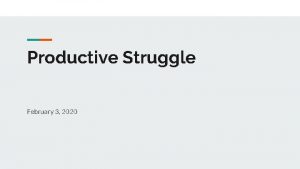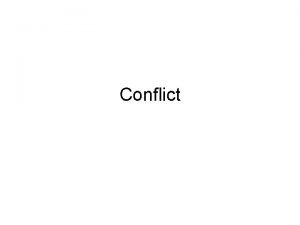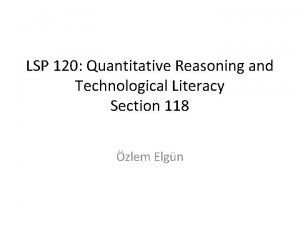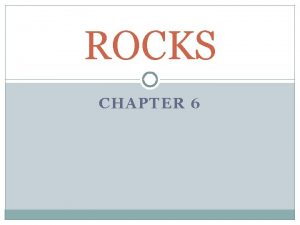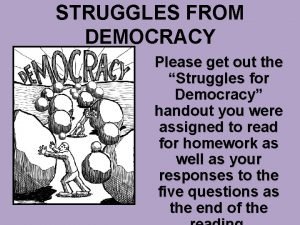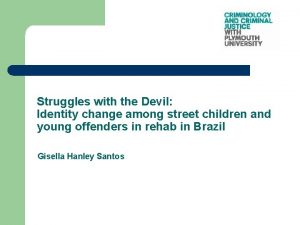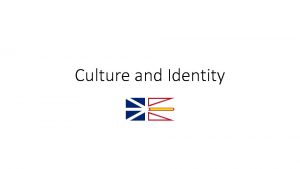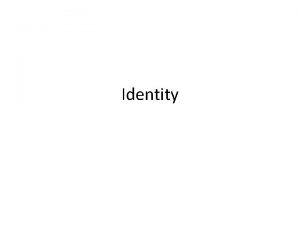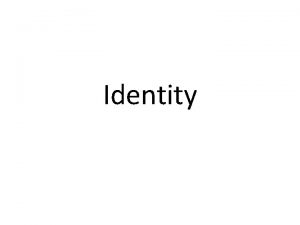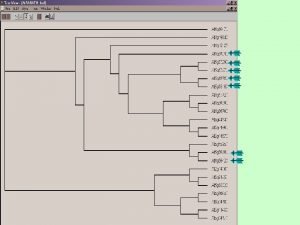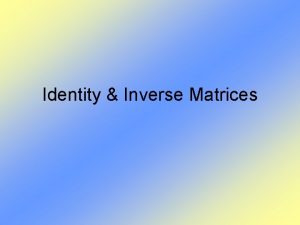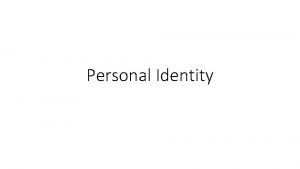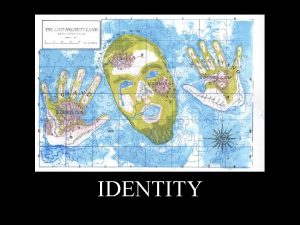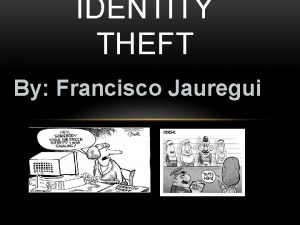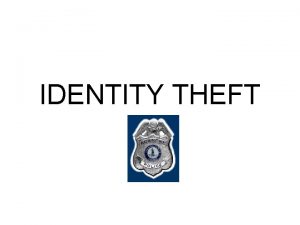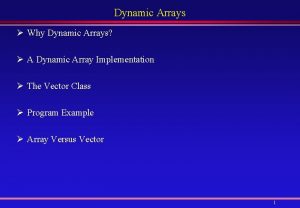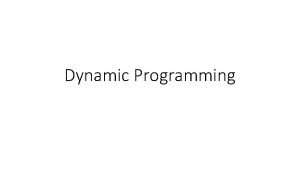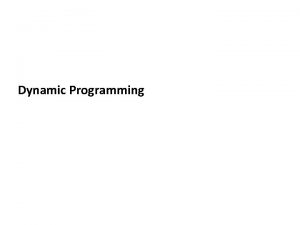The struggles of Isreality Dynamic identity change and





















- Slides: 21


The struggles of ‘Isreality’: Dynamic identity change and social movement participation among Israeli refusers Eden Tosch & John Drury Department of Psychology: University of Sussex

� The decision is made alone, by any soldier, not necessarily by activists

Trajectory of Radicalization • Participants display a shift towards increasingly critical views on the Israeli military and power structures and an increasing commitment to act for change.

Trajectory of Radicalization • Develops where an ‘asymmetry of representations’ exist – incongruity of refusers’ self-identity compared to how they are perceived (and treated) by others – Representations held by Authority Figures with power over the refusers

Trajectory of Radicalization • Defined within the Elaborated Social Identity Model (ESIM) as the development of an enduring critical attitude towards those in power (ESIM; Drury & Reicher, 2000; Reicher, 1996 a, b, 2001; Stott & Reicher, 1998)

The Elaborated Social Identity Model • Past ESIM studies: – Set in UK – Show dynamic patterned identity shifts – Protestors in environments of face-to-face crowd conflict with authority – Authority represented by police or security forces • Radicalization appears in response

Broadening The Elaborated Social Identity Model • This Study: – Set in Israel – Show dynamic patterned identity shifts – Refusers in environments of distal conflict with authority – Authority represented by distal inter-group relationships: military actions and social condemnation • Radicalization appears in response

Who are the participants: • 11 Israeli Refusers representing the spectrum of Israeli refusers. – 9 men and 2 women. – middle to upper middle class, Ashkenazi (European) background. – From left leaning left families. – Most sabra (born and raised in Israel). – University educated, four with graduate degrees. – 4 officers, 1 sergeant, 1�Shminist, 2 ‘grey’ refusers – 2 served jail time; all others said they would be willing to go to jail.

Theme: ASYMMETRY OF REPRESENTATION • Refusers discuss differences between how they perceive their action (and thus their identity) and how they experience other’s perceptions of them….

Theme: ASYMMETRY OF REPRESENTATION …and you love your country blindless, you know. –J a big part is Israeli society is thinking “traitors” (laughter). Or terrorists—lots of people think that. I mean, I am sure that people think that they should be hanged… –O

Theme: ASYMMETRY OF REPRESENTATION And I think that the reason I am not the same (as a friend who emigrated) is because I’m so connected. Because I see myself as an Israeli and I, in some place in my heart, I don’t want to give up (…) and so the answer is yes, that’s what made me, able to sacrifice all that: Because I feel this connection, ‘cause many people blame me as, you know, as a traitor, you know ‘you hate your own’, you know, ‘you hate yourself’, ‘you hate your people’. —S

Theme: BECOMING ACTIVISTS • Refusers go from attending protests to organizing protests • They publish articles, speak publicly, organize and participate in events, study related academic subjects, and produce politicized art and music

Theme: BECOMING ACTIVISTS I was brought up on the zionistic notions. But the first time i really felt ‘one with the cause’ for me it was very, can i say– shaping experience? It really… it really shaped me. –A

Theme: BECOMING ACTIVISTS I think you don’t really have a choice … I think, I don’t think I wanted to—at the beginning at least I didn’t really thought about this—‘let’s, let’s go and shout this everywhere. ’ But since--- everybody had something to say about it, everyone I knew had something to say about it, you know, (…) you come to be a spokes-person whether you want it or not. Later it developed into a situation where… I, I’m happy to speak. –O

Theme: REFUSERS AND PALESTINIANS • Ethno-national discourse of Israel prohibits cooperation and even association with Arabs • Refusers see ‘them’ as ‘us’ in an act of ‘social creativity’ (Reicher, p. 323) -- an imaginative re-categorization Reicher, S. (1996) Social identity and social change: Rethinking the context of social psychology. In Robinson, W. P. ed. Social groups and identities: Developing the legacy of Henri Tajfel. Oxford, Butterworth-Heinemann.

Theme: REFUSERS AND PALESTINIANS • symbolically inverting Israeli identity An ex-pilot, and reservist of many years S: ‘I’m just, my heart now is, is now with the weak side’ A 21 -year-old woman, D speaks somewhat tongue-incheek: ‘I’m on the side that hates me. ’

Theme: REFUSERS AND PALESTINIANS

Context: Israel • Israeli Defense Force the ‘peoples’ army’ • Israeliness : collective fate and shared identity, interweaving of individual and national identities bound within political situations and ideological narratives • Rejection of military = rejection of Israeli identity

Authority: Direct v. Distal • Social disapproval carries a heavy weight • Significant enough to be compared to the police repression of previous ESIM studies • Punishment for refusing is the rejection of the community, limited access to education and employment opportunities, exclusion even from some peace organizations, and the enduring distain of many.

Summary • Radicalization • Critical Identity as outcome not (just) determinant • Distal as well as Proximal relations with Authority • Iraeli-ness struggled over rather than rejected
 Define productive struggles
Define productive struggles Hoover struggles with depression
Hoover struggles with depression Define productive struggles
Define productive struggles Struggle between opposing forces
Struggle between opposing forces Identity map
Identity map Dynamic dynamic - bloom
Dynamic dynamic - bloom Physical change definition
Physical change definition Absolute change and relative change formula
Absolute change and relative change formula Difference between chemical and physical property
Difference between chemical and physical property Supply and demand curve shifts
Supply and demand curve shifts Physical and chemical changes examples
Physical and chemical changes examples Rocks change due to temperature and pressure change
Rocks change due to temperature and pressure change Whats the difference between a physical and chemical change
Whats the difference between a physical and chemical change First and second order change
First and second order change Hình ảnh bộ gõ cơ thể búng tay
Hình ảnh bộ gõ cơ thể búng tay Frameset trong html5
Frameset trong html5 Bổ thể
Bổ thể Tỉ lệ cơ thể trẻ em
Tỉ lệ cơ thể trẻ em Voi kéo gỗ như thế nào
Voi kéo gỗ như thế nào Tư thế worm breton là gì
Tư thế worm breton là gì Chúa sống lại
Chúa sống lại Môn thể thao bắt đầu bằng từ đua
Môn thể thao bắt đầu bằng từ đua
